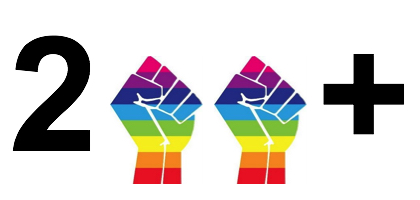New policy announcement sparks criticism.
This past week, Harvard College Queer Students and Allies (QSA) met for elections and engaged in a conversation about the organization’s role in political issues. The discussion ended with a vote in favor of a new policy regarding QSA’s neutrality and decision to refrain from becoming a political organization, supported by 15 attendees. On September 13, two days after the meeting, an email was sent across the listserv to explain the new policy:
QSA should remain extremely committed to advocating for LGBTQ+ students on campus and LGBTQ+ issues in the world at large but will remain politically neutral on issues that do not explicitly or directly affect LGBTQ+ Harvard students for their identities as LGBTQ+ people.
However, the original email inaccurately stated the new policy and clarification was sent in an email over the same list in the following days. QSA’s board and attendees voting in favor of the policy wish for the organization’s role on campus to remain as an umbrella advocacy group for those within the LGBTQ+ community. The policy, as QSA clarified, is intended to reinforce the organization’s “role as a safe space for all queer and questioning students regardless of their backgrounds or ideologies.” The organization’s subcommittees are still able to engage more broadly with intersectionality and political issues.
The organization expressed its devotion to supporting all identities held by LGBTQ+ students and in providing safe spaces for all students. However, students criticizing the policy are concerned about the potential exclusivity and anti-intersectionality that QSA could potentially be endorsing. Students quickly replied to the original email and took to social media to emphasize the importance of representation in organizations that advocate for the LGBTQ+ community at large. Rejecting even a case-by-case basis for deciding how the organization would respond to political issues has further incited criticism from students.
With the impending HUDS strike, many students are at odds with the new measure that would refrain from supporting the HUDS workers in their ongoing discussions for affordable and comprehensive health care. Current members, even those on the board, have criticized the organization for deciding to remain silent on imperative issues. The accusations that QSA assumes identity can be divided, allowing members to disengage with other facets of their lives, while discussing queer issues, have even led to a petition signed by over 200 students within the first few days.

Students are asking QSA to allow itself to become a greater allyship of issues that are bound to the many forms of oppression that queer individuals face. Gender, race, ability status, religion, socioeconomic background, and sexuality are among the many ways that individuals choose to identify themselves and to focus solely on one while separating how others may influence or affect it is often impossible. In efforts to appear neutral politically on issues, the QSA instead sends a message to students that they assume certain privileges of queer students that would allow remaining inactive in discourse. As a group that aims to provide support and a safe space for students that otherwise may experience many forms of oppression, students are demanding said support to acknowledge the many other influences it could have on similar causes.
The current petition being circulated calls for QSA to be more “actively and explicitly committed to justice for people of all abilities, classes, genders, national origins, races, religions, and other identities.” As the largest queer organization on Harvard’s campus, QSA has considerable influence and the effect of its support, or lack thereof, for political issues reaches many students on campus.
With this policy, QSA also limits its ability to align itself or work with other organizations that may have mission statements that may support many of the same members. There becomes gray area of what is defined as an issue explicitly connected to queerness in order for it to be endorsed. The consensus holds that QSA cannot be a social organization that ignores the politicized nature of queerness that many students experience.
Hunter Richards ’18 (hrichards@college.harvard.edu) looks forward to more discussions to make queer spaces more inclusive.

